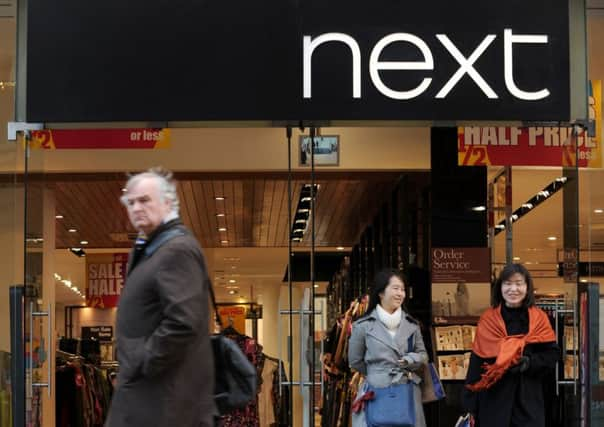Martin Flanagan: What comes Next after bellwether's blow?
This article contains affiliate links. We may earn a small commission on items purchased through this article, but that does not affect our editorial judgement.


In high street terms, substitute fashion retailer Next for the talismanic Number 10. The company, so often a reliable totem for the sector even when headwinds are discomfiting rivals, is the first big retailer to report festive trading results and they are Dry January-level sobering.
The group has had a poor Christmas and has cut its profit forecast for its nearly completed current financial year. It also says that it faces a tough 2017, including a cyclical clothing downturn, price rises of up to 5 per cent because of rising input costs, and a likely squeeze on after-inflation earnings as companies cut costs in the post-Brexit uncertainty.
Advertisement
Hide AdAdvertisement
Hide AdNext’s full-price sales at its stores fell 3.5 per cent in the two months to Christmas Eve, although sales rose 5 per cent at its Directory business. Chief executive Lord Wolfson could hardly be accused of sugaring the pill, but then he didn’t at this time last year, either.
The company yesterday spoke of “exceptional levels of uncertainty in the clothing sector”. It was predictable then, given Next’s standing, that its cheerless update should chill the sector.
Next’s own shares plunged 14 per cent, Marks & Spencer fell 6 per cent, Debenhams almost 7 per cent, Primark-owning Associated British Foods nearly 4 per cent and Burberry 2 per cent.
On a more macro-level, and perhaps prematurely according to the Brexiteers, it has given the more pessimistic licence to suggest we are nearer to the pavement now after jumping off the 100-storey building that was the European Union departure vote according to Carphone Warehouse founder Charles Dunstone.
The UK economy has got its puff since the financial crash from consumer confidence and a certain aplomb about personal debt. If that fades it is bad news, while the other tailwind of business investment is also vulnerable the more tortuous the Brexit negotiations become.
That would leave exports supported by the weak pound as the only game in town for the Brexit optimists. It is a lot to read into one major retailer’s festive performance, but not entirely implausible, either. We will see which way the consumer wind is blowing over the coming weeks.
